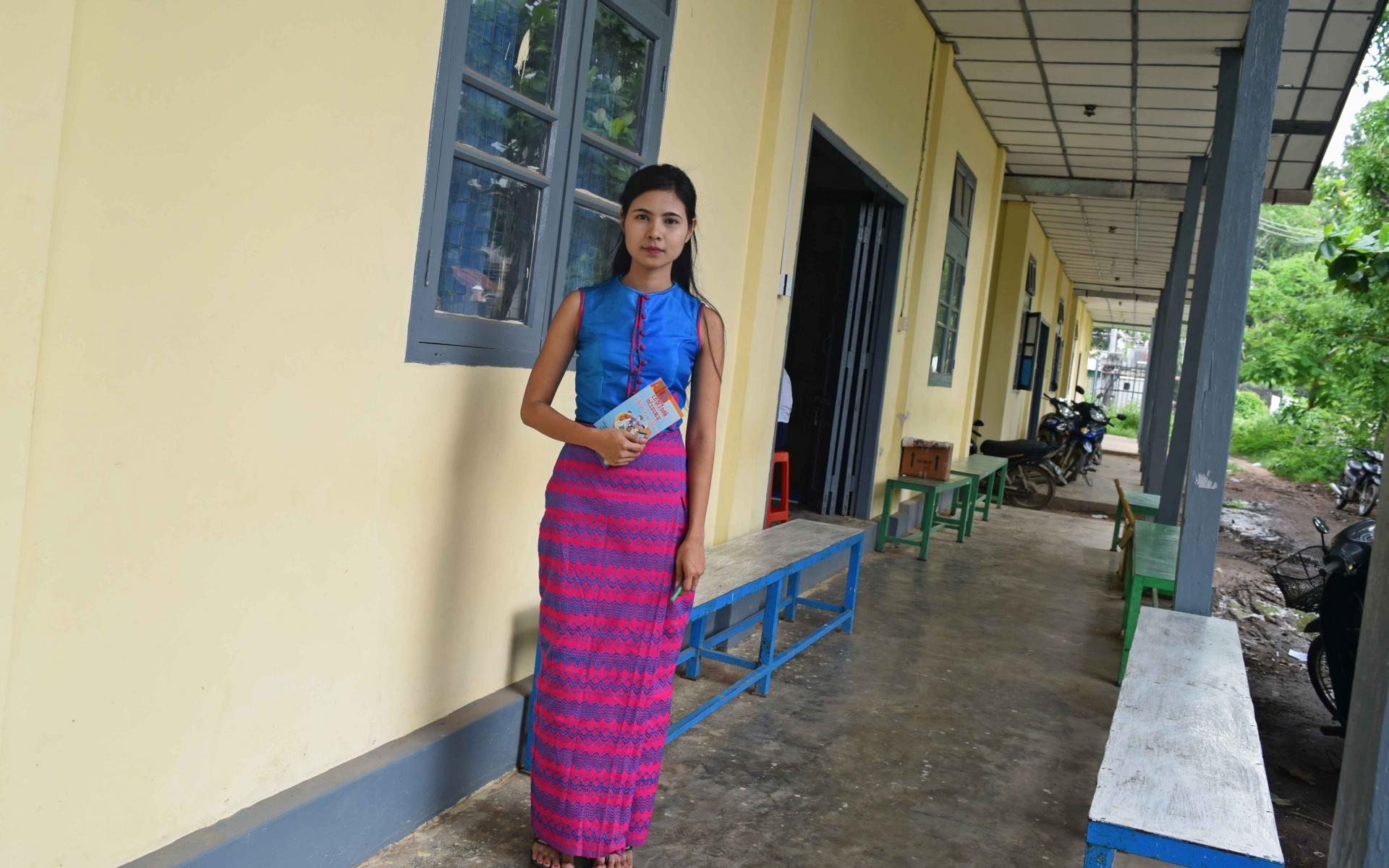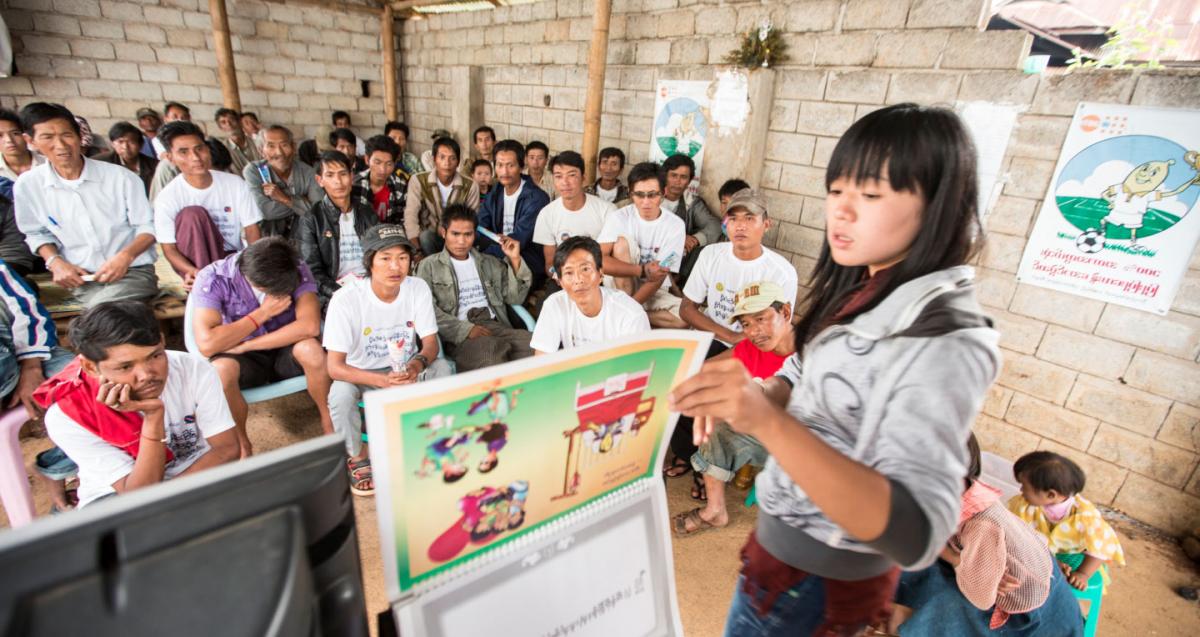Dr Cherry Lwin is writing notes in a patient registration book at the NAP clinic of Hinthada General Hospital. She is the Pyi Gyi Khin ART Programme Officer of Hinthada Township, Ayeyarwady Region, (and is attached to Hinthada NAP). She has a brilliant smile on her face because she cannot express how much she thanks her outreach workers (ORWs) for their role in the successful treatment of one of her ART patients.
ORWs form an essential link between the community and the HIV prevention, care and treatment services. In her team, there are two ORWs, Daw Shwe Zin Win and Daw Kyu Kyu Khaing, who are both peer volunteers.
Ko Toe (not his real name) is a 21-year-old patient on ART. A few months ago, when he did not turn up for a follow-up appointment, Dr Cherry Lwin was able to follow him to his home, only with the help of her ORWs.
“I was so worried for Ko Toe’s health when he did not come to the appointment,” she explains.
Being community members themselves, ORWs have first-hand knowledge of the community through their connections and strong social networks. Their volunteer work often brings them to patients’ homes in far-away villages, mostly on foot or by motorbike, as many are not accessible by car due to the difficult terrain. Ko Toe’s home was in one of these.
“It took us one hour on motorbike to his village. It would not have been possible to get there without the help of my ORWs,” she continues.
They found Ko Toe at his home. He looked so lost and helpless and the outreach team was eager to help him and find out what had kept him away from the follow-up.
“I have never missed or been late for follow-up. But recently some people in my village found out about my HIV status and they don’t welcome me any more at the village video parlour because they are afraid that they might get HIV from me through mosquito bites. I don’t want to face them any more so I dare not leave my home to come for the follow-up,” Ko Toe told them down-heartedly.
The outreach team immediately explained to him and his family about the risk of the virus developing drug resistance if the treatment is interrupted, and also provided psychosocial support to ensure he continued in care. Their sincere and dedicated outreach effort was a success, as Ko Toe came back for the follow-up appointment the next day. Since then he has been fully engaged in care with regular follow-up.
Daw Shwe Zin Win and Daw Kyu Kyu Khaing are both mothers, and so they have families to take care of and need to make a living on top of the volunteer outreach they do. In spite of their busy daily lives, they work hard and devote their time and effort for the better health of the community. Treatment at the clinic complemented by their outreach service contributed to saving Ko Toe’s life.
“I would like to acknowledge that we owe much for this success to our ORWs, who need to be maintained and their motivation upheld to reduce turnover. With their strong support, our ART team will continue to provide our best services for all patients in need,” Dr Cherry Lwin concluded confidently, looking through the clinic window at the waiting patients outside.
Pyi Gyi Khin has been implementing its HIV programme to improve the quality of life of people living with HIV through psychosocial support, home visits, health education and treatment provision since 2011 with support from the Global Fund.



